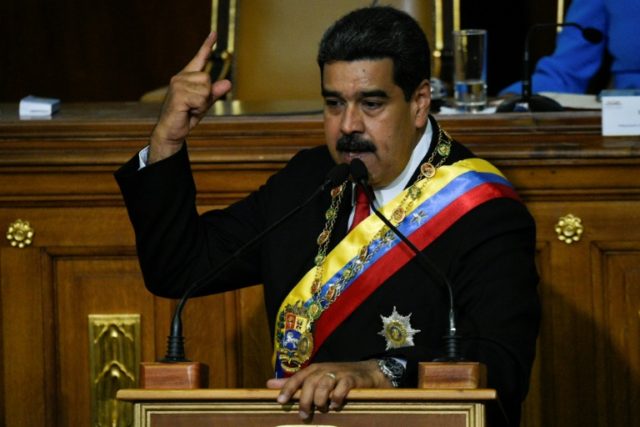The European Union provided Venezuela with €35 million ($47 million) in aid last week to help alleviate the country’s ongoing humanitarian crisis.
In a press release on Thursday, the EU Commission announced that “€5 million in humanitarian aid will provide health assistance, food and nutrition, water and protection for the most vulnerable mostly inside Venezuela,” while “another €5 million will support conflict-prevention measures to reduce social tensions and violence and protect people displaced by the crisis.”
The funding comes as the humanitarian crisis in Venezuela continues to worsen and increasing numbers of people flee the country to Colombia and Brazil, mainly, in what has quickly become one of the world’s most alarming migration crises.
“€18.1 million in development assistance will address food and nutrition security, water, sanitation and hygiene within the country, as well as the socio-economic inclusion of migrants and support for host communities in neighboring countries,” it continued. “Furthermore, an additional €7 million to meet further needs of those communities is being made available.”
A spokesperson for the European Commission told the Associated Press that, instead of giving the money to the Maduro regime, the money will be given to charities and crisis groups such as the Red Cross helping to alleviate the humanitarian crisis.
The announcement comes as Venezuela faces the worst economic and humanitarian crisis in its history. Millions of people are unable to access or afford adequate nutrition, health care, housing, or basic living products such as toilet rolls and toothpaste.
“We are very concerned about the critical situation in Venezuela and its impact in neighboring countries such as Colombia,” said the EU’s Commissioner for International Cooperation and Development Neven Mimica. “This package will improve the Venezuelan people’s access to food and nutrition, as well as basic services like water, sanitation, and hygiene.”
Last November, the EU approved sanctions against Venezuela in the form of an arms embargo, designed to prevent the regime was accessing weapons used for repression or surveillance of civilians.
Following a presidential election last month that Maduro successfully rigged, the EU also joined the United States in promising to “swiftly” adopt new sanctions, stating that the “election lacked any credibility.” However, no new policies have been implemented thus far.
“The EU will act swiftly, according to established procedures, with the aim of imposing additional targeted and reversible restrictive measures, that do not harm the Venezuelan population, whose plight the EU wishes to alleviate,” ministers from all 28 EU states said in a statement.
In March, the United States also announced that they would provide $2.5 million in aid to Venezuelan refugees who have fled to neighboring Colombia in the wake of the ongoing crisis, although those funds will only be spent outside the country.
The Maduro regime has repeatedly turned down offers of aid from the international community, partly because doing so would mean accepting the failures of his government, who flagrantly deny the existence of a humanitarian crisis while blaming any economic difficulties on the United States.
The need for humanitarian assistance also comes as many of Venezuela’s traditional financial backers, such as China, start to back out from providing loans and economic relief due to the Maduro regime’s failure to pay back its debt. On Monday, it emerged that Beijing has not authorized any loans to Venezuela since 2016.
Follow Ben Kew on Facebook, Twitter at @ben_kew, or email him at bkew@breitbart.com.

COMMENTS
Please let us know if you're having issues with commenting.